Proving we care
The purchase of one pair of socks has the power to change our future.
The CARE certificate system has been created to ensure that companies and
consumers alike are able to avoid ethical and environmental pitfalls. It
is the first transparent initiative in manufacturing for the protection of
human rights and the environment.
We are working towards a world that adheres to a fair labor standard and
sustainable practices — one where everyone works and lives in safety. It
is time to create a more equitable world where consumers and companies care
about our future
-
Make the world a better place to work and live
The CARE certification focuses on workers and the environments we live in.
We are here to analyze and assess the conditions of workers across the globe and the commitment of organizations to environmental sustainability. -
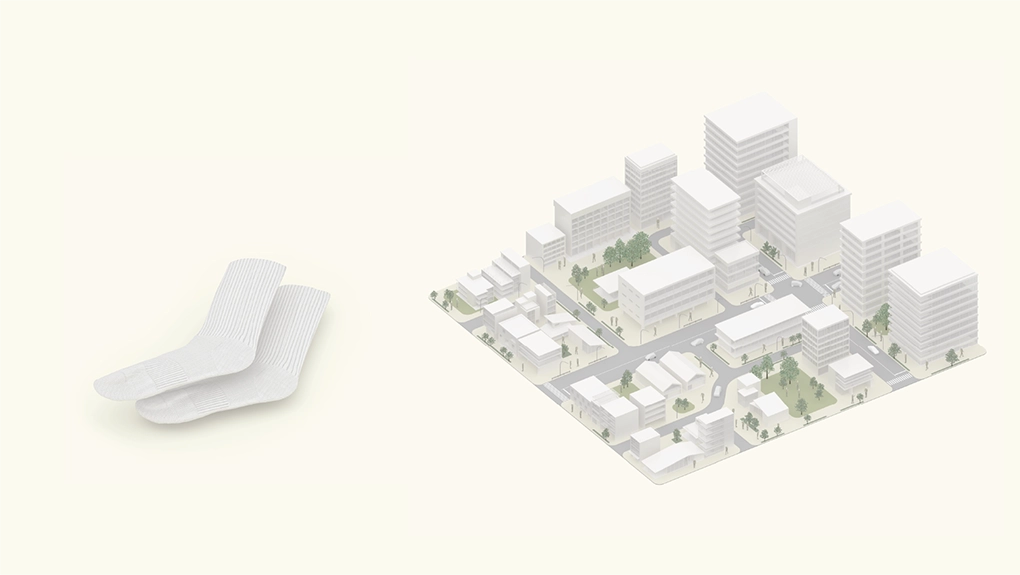
From socks to cities
Rather than analyzing individual companies, we take a different approach. CARE is the world’s first certification system that evaluates on a product and service-level, setting industry-wide standards for everything from clothing and groceries, to hotels and urban infrastructure.
-
Looking further into the future
We go beyond the superficial. By tracing back through the global supply chains as far as factory and field workers, we are able to paint a clearer picture of reality.
A rigorous data collection and analysis process
We analyze companies’ products and services using 10 key metrics.
With the help of official reports from trustworthy organizations such
as the UN, we assess data related to region, gender, age and educational
background. We also mine real-time social media data. Before we sign
off on our reports, we make sure a third-party has combed through the
data to ensure complete accuracy.
Create a healthy work environment
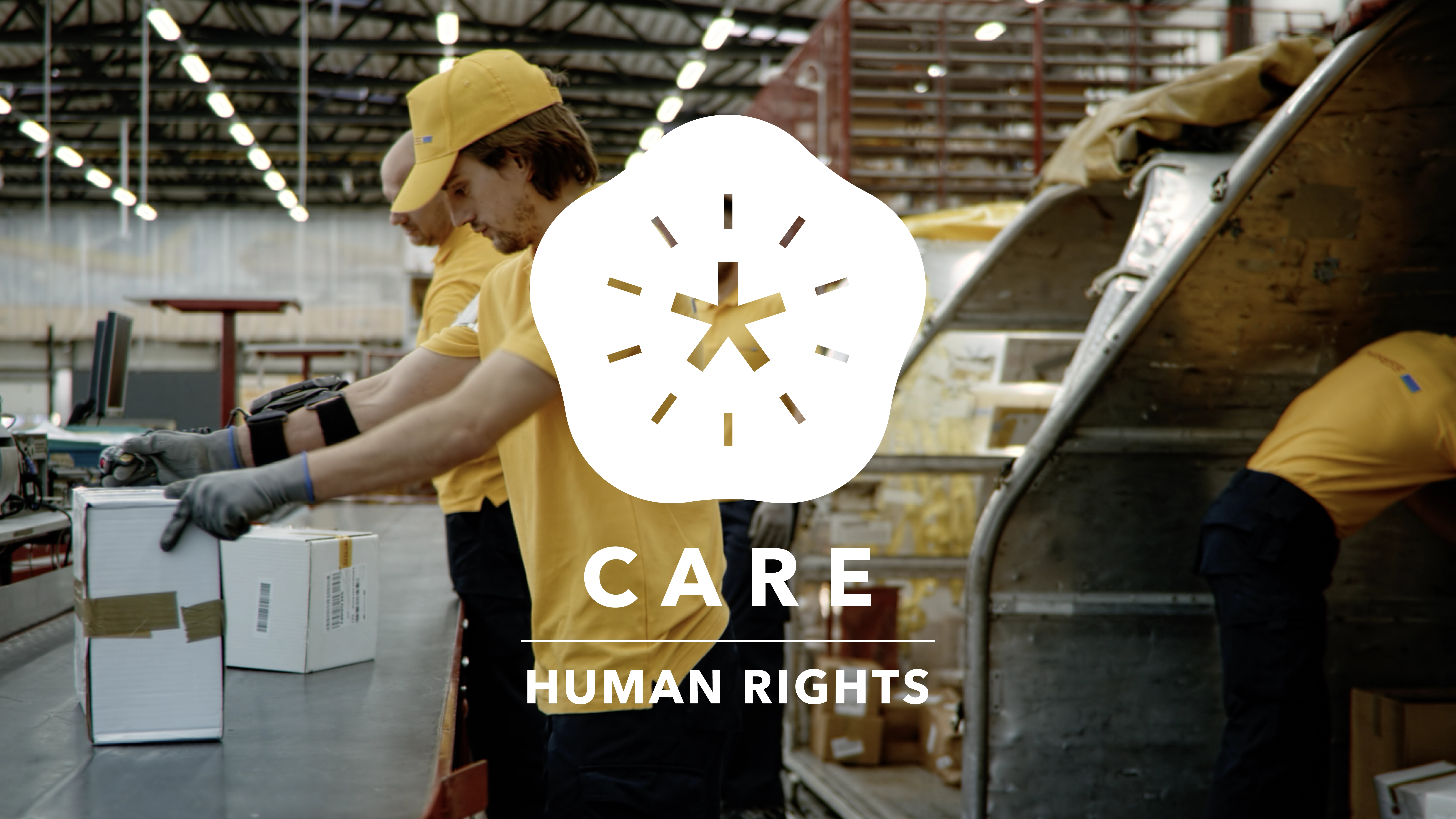
-
1. A fair work and labor environment
We address the work environment from various angles — child labor, immigrant labor, forced labor, overwork, low-wage labor, and worker dismissal issues.
-
2. A safe and healthy work environment
Whether in developed or developing countries, a healthy work environment is critical for workers. Employers must protect their workers.
-
3. Human rights for all
The protection of human rights at work has become a key concern in all countries and organizations. While raising awareness of inherent labor rights and human dignity, we will also highlight companies that are working to improve their work environments.
-
4. Social ethics in management
Every year, trillions of dollars that should have been used for medical care and infrastructure development is lost to corruption worldwide. Shockingly, the sum is equal to about 5% of the world's gross domestic product. We keep watch to ensure that companies follow rigorous social, environmental, and economic standards.
-
5. Medicine and education for all
People work in environments without clean drinking water, and children work in rural areas without medical and educational institutions. We look at workers' livelihoods with access to local infrastructure such as clean water, hospitals, and schools that we take for granted.
Create a Sustainable Environment
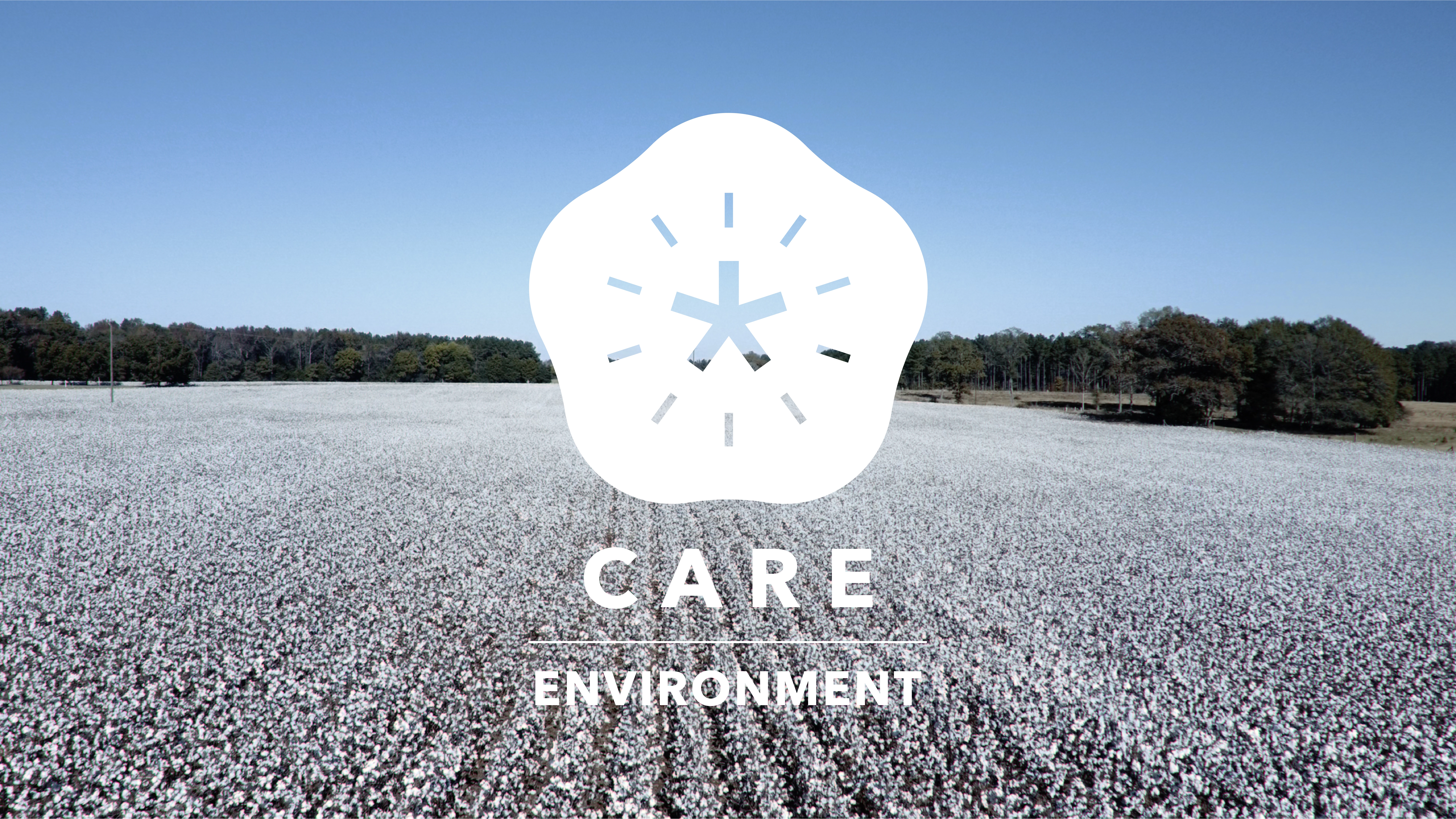
-
1. Being careful with finite resources
Given the finite nature of non-renewable resources like oil and gas, we evaluate companies based on their efforts to transition to renewable energy sources and improve resource efficiency to address limited energy concerns.
-
2. Preserving our planet for future generations
Beyond environmental degradation, air and water pollution inflict significant health hazards. We evaluate companies based on their commitment to tackling these pressing concerns.
-
3. Minimizing climate change
Global warming-induced climate change poses a threat to the delicate balance of our shared environment, home to all living beings. We assess companies that advocate for the reduction of carbon dioxide and other greenhouse gases.
-
4. Cherishing Mother Nature
The natural splendor around us is under constant threat of vanishing. We scrutinize a company's approach to assess if it prioritizes the conservation of vital natural resources such as rivers, forests, and agricultural lands.
-
5. Looking out for all living things
Tens of thousands of species are facing the threat of extinction. We diligently monitor global activities to prevent environmental pollution and destructive development, safeguarding the safety and well-being of all living beings.
To produce
one T-shirt,
- HUMAN RIGHTS
- ENVIRONMENT
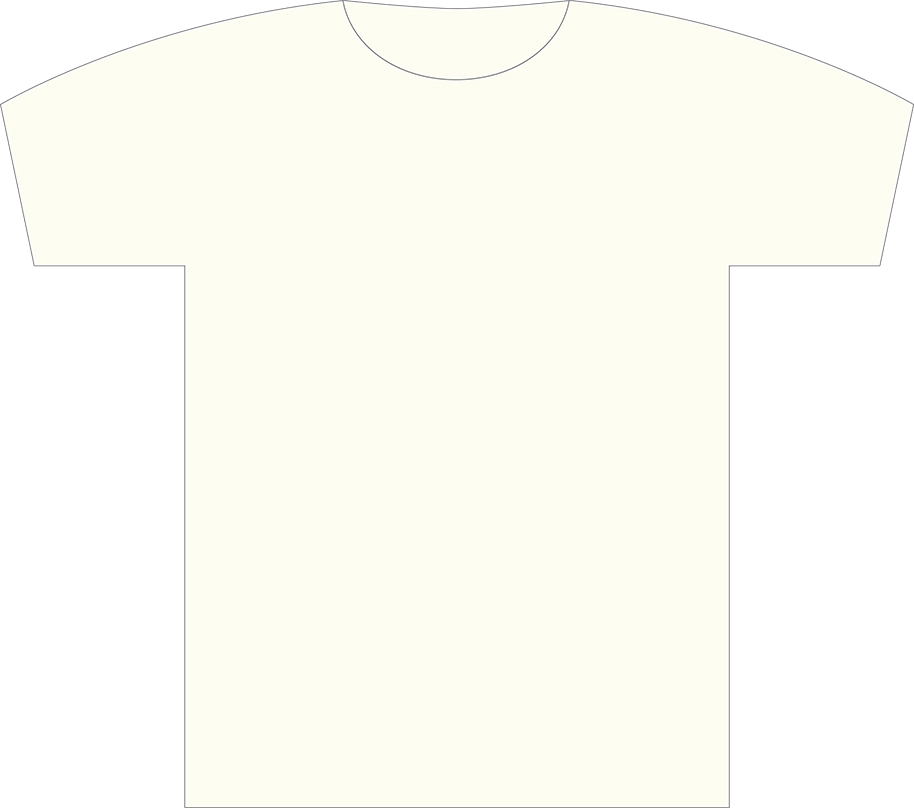
HUMAN RIGHTS
- 10.1 hours of unfair labor is spent in a substandard environment on a global scale.
- 9.8 hours have been spent in an unsafe and unhealthy environment on a global scale.
- 7.2 hours are spent annually in endangered human-rights environments on a global scale.
- 13.2 hours are spent in socially inadequately protected environments on a global scale.
- 5.5 hours are spent in environments where hospitals and schools are lacking on a global scale.
ENVIRONMENT
- 6.63 square meters of forest lost
- 8.89 square meters of farmland lost
- 102 liters of freshwater consumed
- 2.24 kg of biomass resources consumed
- 3.52 kg of fossil fuels consumed
- 1.02 kg of mineral resources consumed
- 16.6 kg of CO2 emitted
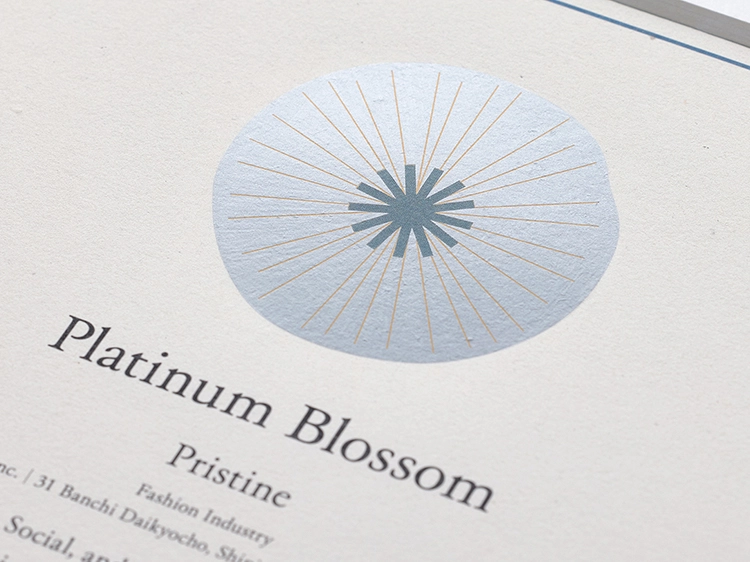
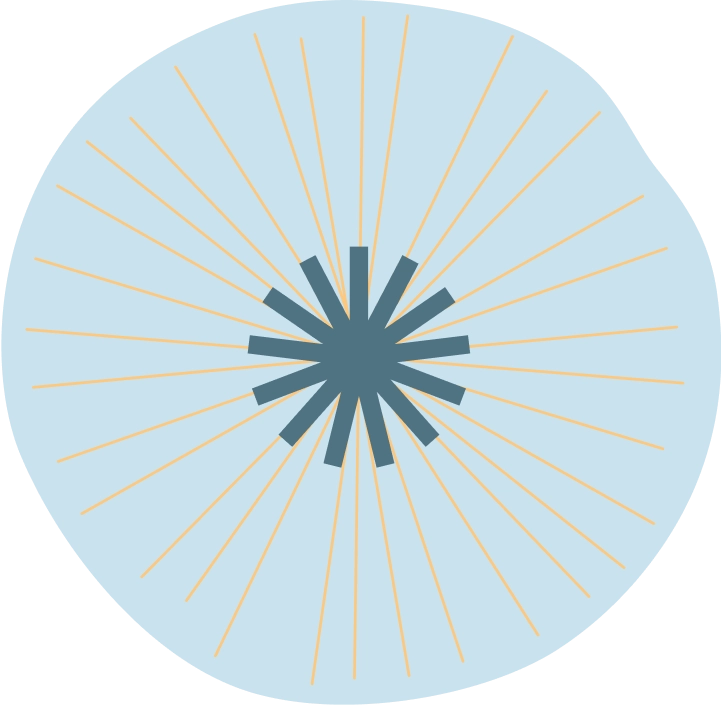
Global Industry Credibility
CARE Certificate:
We give awards to CARE-certified companies that help prove their
trustworthiness as organizations. Awards are only issued to
companies that
have achieved a minimum score following a rigorous survey and
analysis
process. A graph-derived flower symbol is printed on the
certificate to
reflect each individual company’s rating.
4 types of Blossom Awards
There are four certified awards based on level of achievement for both the “Human Rights” and “Environment” sections: "Platinum Blossom," "Gold Blossom," "Silver Blossom," and "Bronze Blossom". Furthermore, the "Environment" section incorporates a "Carbon Offset" certification, which assesses greenhouse gas emissions. The flower symbol is based on the shape of the calculated data graph. The better the overall index value, the larger the flower symbol.
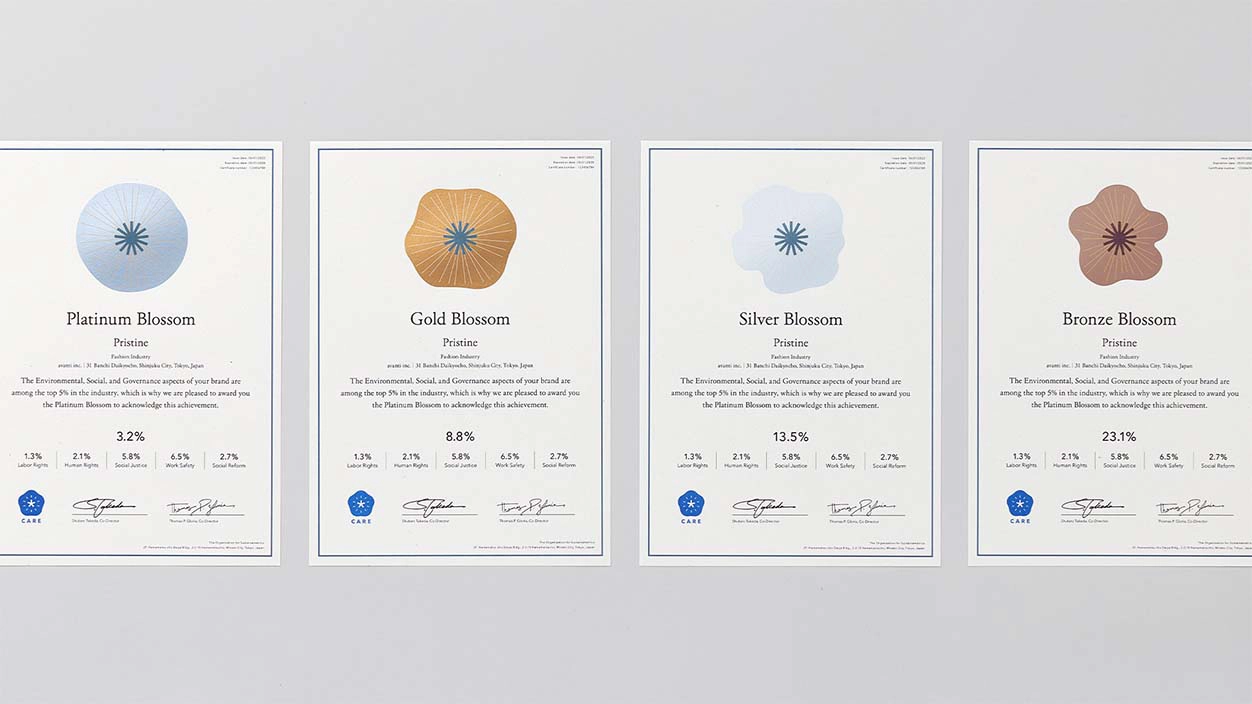
We care for the earth and its ecosystems
We use Re-COTTON paper (recycled cotton paper) which utilizes leftover threads and cut-off fabrics produced during the manufacturing process of cotton products. We choose eco-friendly materials for every operation.
*Re-COTTON is a CARE-certified PRISTINE product.
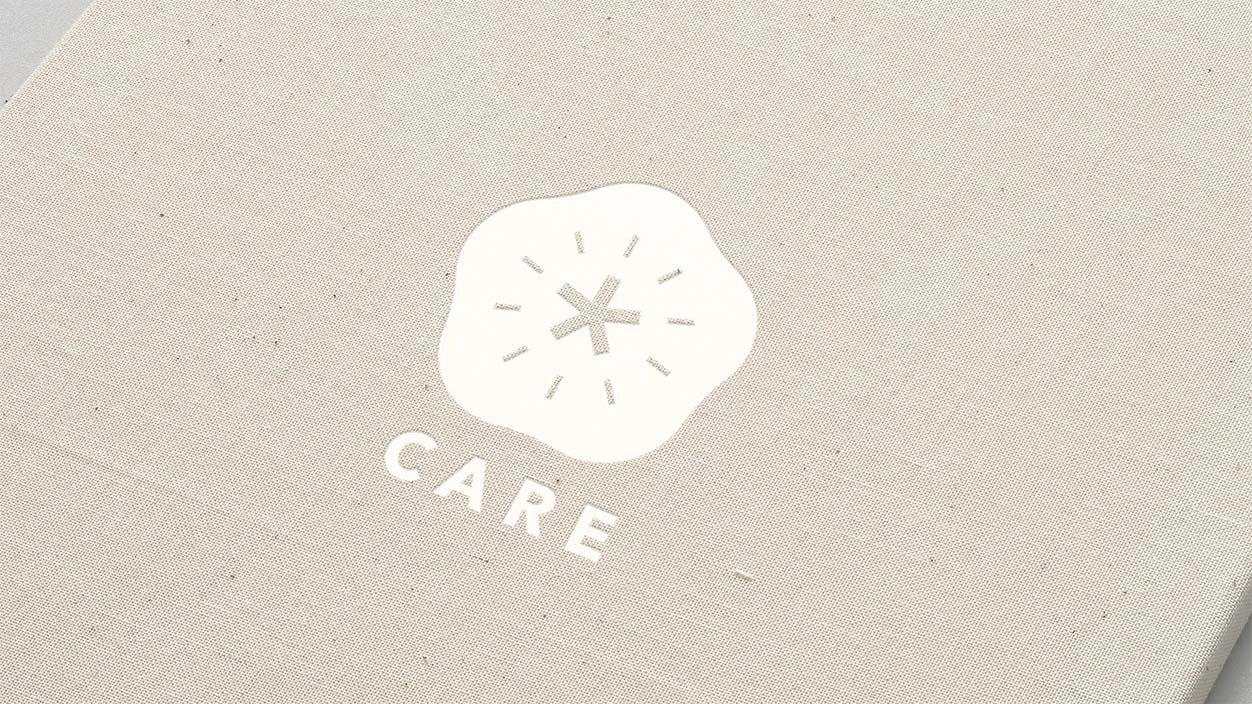
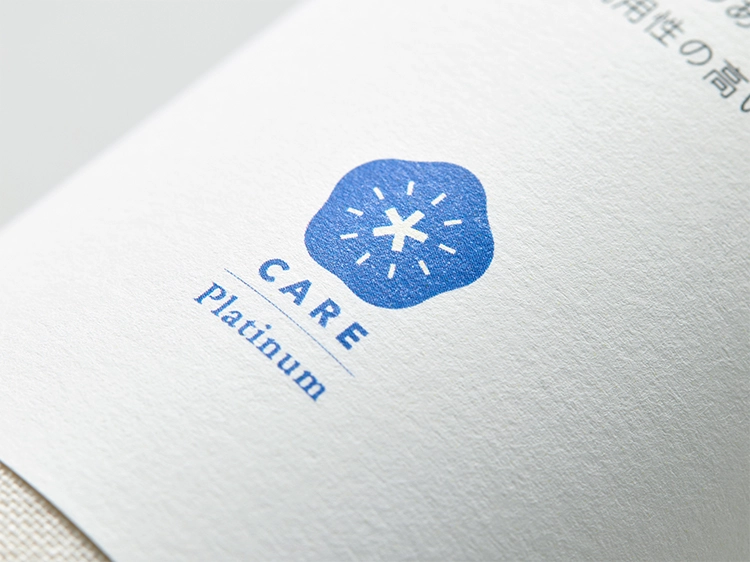
About Us
We at The Organization For Sustainametrics promote the human rights of workers and the protection of the planet. Our pioneering CARE certification system will guide the global economy toward true sustainability.
- Management:
- The Organization For Sustainametrics
- Established:
- 2/2/2023
- Business Activities:
- Human rights and ESG assessment and certification of products and services
- Address:
- Japan, 〒105-0013 Tokyo, Minato City, Hamamatsucho, 2-chome−2−15
- Board of Directors:
- Shuutaro Takeda
Director General
-
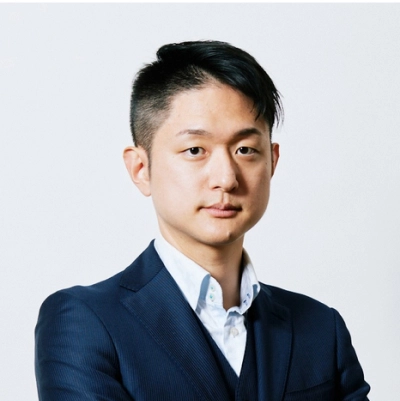
Shuutaro Takeda Associate Professor, Center for Urban Research, Kyushu University
Recieved his PHD. in Energy Science from the Faculty of Engineering at Kyoto University, where he was the first graduate student to graduate early from the School of Energy Science. After graduating from Harvard University with a Master's degree in Sustainability Studies, he joined the United Nations. As of May 2022, he is an associate professor at Kyushu University.
-
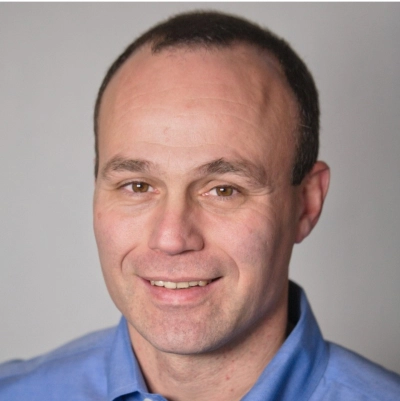
Thomas P. Gloria Former Director, Sustainability Program, Harvard University
Served as a member of the U.S. ISO committee on LCA and as an editor of various journals. He is currently the founder and president of Industrial Ecology, a company that provides environmental assessment, including LCA, to industry.
Adviser
-
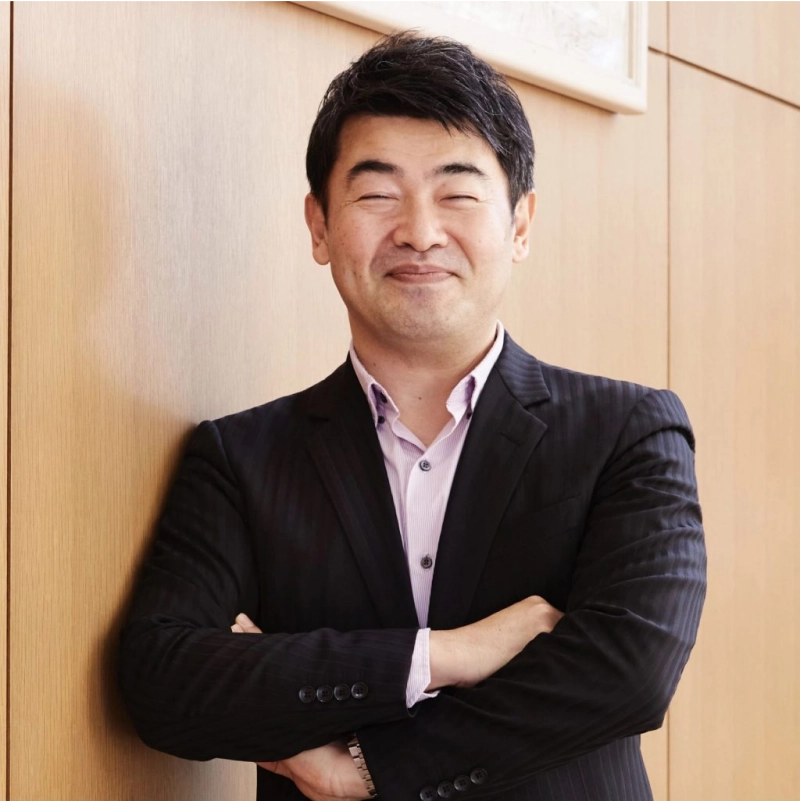
Norihiro Itsubo Professor, Faculty of Science and Engineering, Waseda University
He is a leading expert in life cycle assessment (LCA), having contributed to the development of LCA methods at various public institutions since 1998. He has held positions as an associate professor and later as a professor at Tokyo City University since 2005. As of April 2023, he is a Professor at Waseda University’s Faculty of Science and Engineering.
Third Party Committee
-
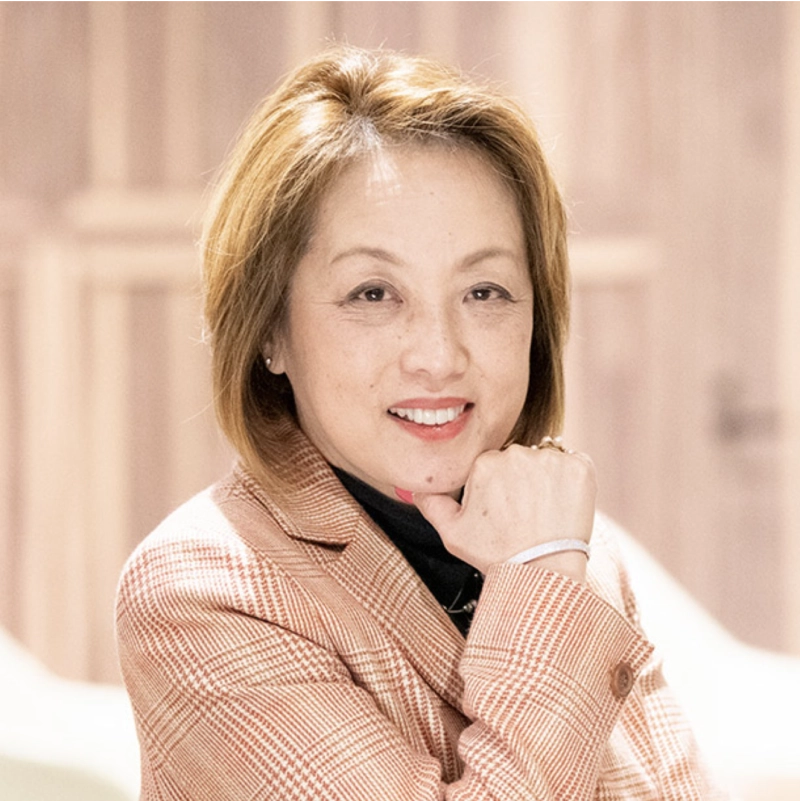
Sachiko Kuno
Japanese social entrepreneur, co-founded Halozyme Therapeutics and led Sucampo Pharmaceuticals. She has received numerous awards over the years, including an appearance on the list of Forbes Magazine's Top 50 America's Richest Self-Made Women.
-
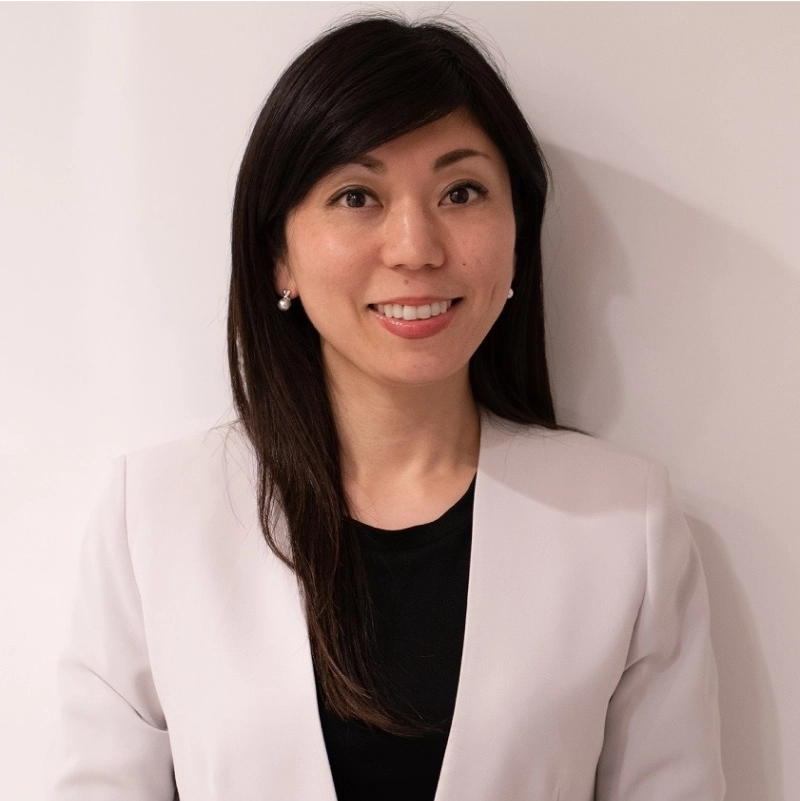
Sawako Yasuda
Founder and CEO of Street Insights, a data analysis company. She has appeared on NHK and TV Tokyo, and served as a commentator on Nikkei CNBC and Radio NIKKEI.
-
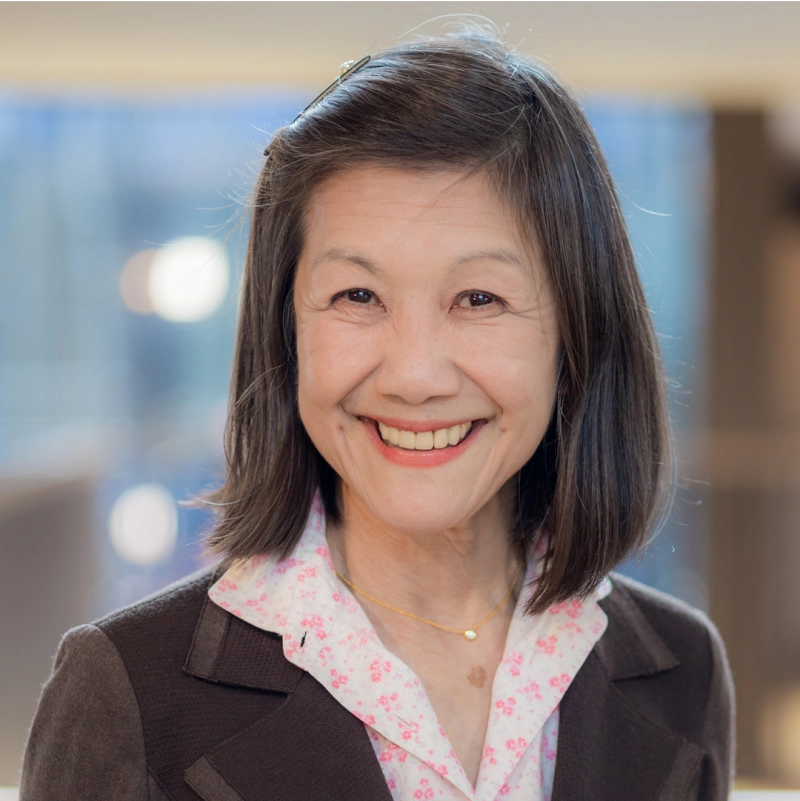
Akiko Murai
Associate Professor at Kyoto University Graduate School of Management. She led organizational changes at the World Bank for 18 years, focusing on global talent management and organizational development in international settings.
